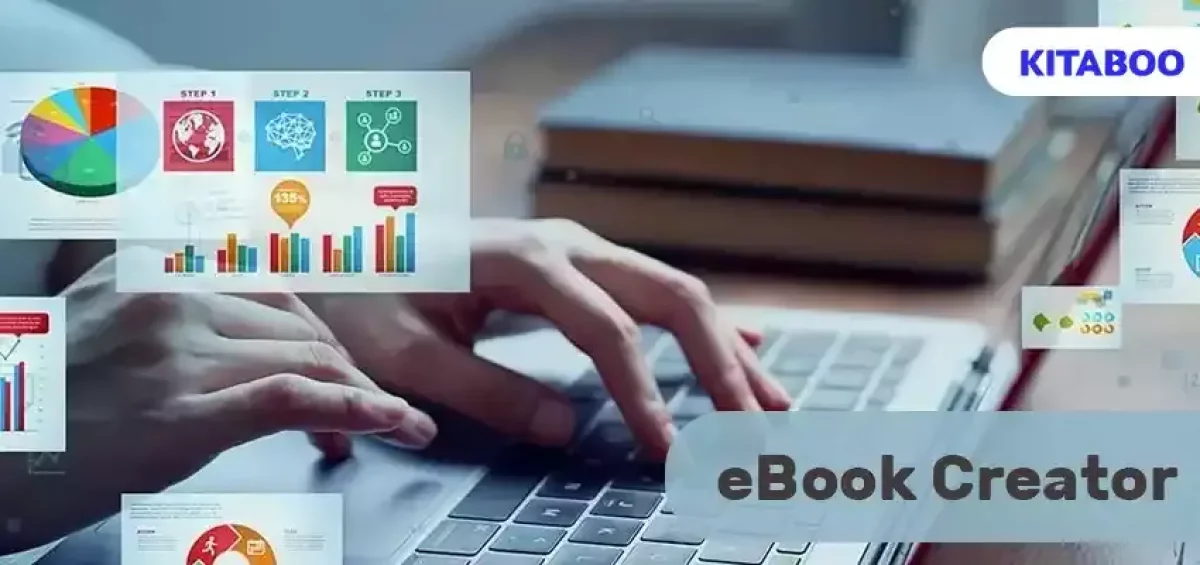If writing a book is on your bucket list, you would have most likely envisioned your book being on the shelves of bookstores worldwide. That said, in this day and age, where a majority of people prefer consuming digital content, is traditional publishing really the way to go?
Nowadays, self-publishing using eBook creators is an increasingly popular option. So which is better?
That is precisely what this blog will answer. We will provide a detailed comparison of the traditional and self-publishing route so that you can decide which option is best for you.
Table of Contents:
Navigating the Publishing Maze: Traditional vs. eBook Creator
Traditional publishing is a concept anyone aspiring to be a published author is familiar with. On the surface, it is a pretty straightforward process; you write a fantastic book, the publisher pays you, handles the rest, and viola, your books are on the shelves of bookstores worldwide.
In reality, traditional publishing is a long-drawn process. As an author, you first need to find an agent, pitch your book, and hope the publisher decides to proceed with the process. If they do, you sign a contract, and the process moves along. We will discuss the nitty gritty of traditional publishing in the coming sections.
Self-publishing, on the other hand, is a more streamlined process. You can use an eBook creator tool, design and format the book exactly how you want it, and publish it to various online platforms such as Amazon Kindle, Apple Books, Google Play Books, etc.
Traditional vs. Self-Publishing: Weighing the Pros and Cons
So, how do you address the question, “What’s best for me?” Let’s get into the intricacies of each form of publishing.
The Pros and Cons of Traditional Publishing
As we mentioned earlier, traditional publishing is a long-drawn process. While it offers several benefits to the author, it has its fair share of downsides. That said, here are some of the pros and cons of traditional publishing to consider:
Pros:
- Access to professional services: Publishers have a vast army of experienced editors, designers, and marketers that can help you polish up your book and promote it.
- Wider Reach and Exposure: Reputed traditional publishers have a vast distribution network and connections in the right places to give your book a wider reach and exposure.
- They add to your credibility as a published author: Traditional publishing can give you the seal of approval that some readers and reviewers look for.
- You don’t have to pay upfront: Traditional publishers typically do not require authors to pay upfront costs. They will cover all expenses associated with producing and publishing your book and, in return, give you a percentage of the sales as royalties.
Cons:
- You will face a lot of rejection: Getting published is not a walk in the park. You first have to approach book agents who may ignore you or reject your manuscript from the get-go. If you are not an author of repute, the chances of your manuscript getting picked up are slim.
- It is a long-drawn process: If you manage to pique a book agent’s interest, it can take them weeks or months to get back to you. If they decide to publish your book, the journey of finishing your manuscript after multiple rounds of editing, proofreading, design changes, printing, distribution, and finally seeing your book on the shelves can take years.
- You lose control over your work: When you get into a contract with a traditional publisher, you usually end up giving up some of your rights to your books, such as the final say on the cover design, the title, the editing, the marketing, and even the pricing.
- You have to share your profits: Traditional publishers take a significant cut of your book sales, and a commission is paid to your agent involved. That’s not all; you also have to wait for your royalty payments, which are usually paid twice a year and may be delayed or withheld by your publisher.
The Pros and Cons of Self-Publishing Using an eBook Creator
Self-publishing using eBook creators is a relatively new and increasingly popular option for authors who want to publish their books without the help of traditional publishers. Here are the pros and cons of going down this route.
Pros:
- Absolute control over your work: Self-publishing using an eBook creator gives you complete freedom over your work. You decide on the title, the cover design, the final layout, and the style.
- You can publish faster: There are no waiting times involved in self-publishing. The sooner you can get your manuscript ready, the sooner you can publish it. Moreover, the advanced automation of an eBook creator can help you publish professional quality work in no time.
- The world is your audience: The most popular eBook platforms are open to a global audience. The most significant advantage here is that you can even target niches traditional publishers may not be willing to work with.
- Profit margins are much higher: When you self-publish, you don’t have to share royalties with the publisher and your agent. You also have absolute control over pricing your work.
Cons:
- You do all the work: When it comes to self-publishing, you have to do everything from editing and designing to marketing. Provided, you engage with any digital publishing platforms to publish your work, and ease the whole process.
- The credibility of a trusted publisher does not back you: There is a preconceived notion that traditionally published books are better than those published using an eBook creator. That said, this will fade over time as self-publishing is a widespread practice now.
Also Read: Digital Publishing Platform: Top 9 Advantages of Using One
What's Better for You? - the Verdict
Traditional and self-publishing are two very different paths to publishing your book. Traditional publishing may be your better option if you are looking for status, and validation. However, self-publishing might be the way to go if you want to start small and grow over time.
However, there is a third option that can help authors who want to self-publish professional-grade work without having to deal with the rejection, profit-sharing, and other hardships of traditional publishing.
KITABOO is a cloud-based platform that helps authors and publishers create, publish, and deliver interactive digital content, especially educational content. With KITABOO, authors can create engaging content, publish it to multiple channels, and track how readers interact with it. In short, KITABOO is the future of digital publishing. It is a powerful and easy-to-use platform perfect for authors looking to self-publish, no matter their experience.
So why wait? Contact us today to know more.
Suggested Reads:
- How to Open and Convert ePub Files?
- Top 7 Innovations in K12 Education and Curriculum
- Top 8 Advantages of Using eBooks in Education
- 8 Best eBook Hosting Platforms For Digital Publishing
- Tablets vs. Print Textbooks: What Is a Better for K12 Education?
- Point Guide for Switching to ePublishing from Traditional Books
- Create an eBook With KITABOO
- Best eBook Creation Softwares
- What is eBook DRM and Why Do Publishers Need it?
Discover How An Ebook Conversion, Publishing & Distribution Platform Can Help You
Kitaboo is a cloud-based content platform to create-publish & securely distribute interactive mobile-ready ebooks.
You May Also Like
-
An Ultimate Guide to the Best eBook Stores of 2024
Blog,Digital Publishing,eBook solution / February 27, 2024








